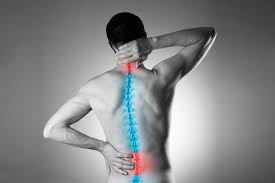Back Pain Facts:
- Eighty percent of Americans suffer from low back and neck pain at some point in their lives.
- An estimated 10% of the world’s population suffers from lower back pain
- More than one in three adults say back pain impacts everyday activities, including sleep
By performing a thorough evaluation, a physical therapist can identify the muscular, postural and skeletal limitations that could one day lead to an episode of back pain. As part of the assessment, they will observe as you perform a series of exercises and then gather an account of your daily activity level and environmental factors like operating machinery or working at a desk 40 hours a week. The PT will then use all of this knowledge to design a personalized exercise program and teach you a few APTA-approved strategies to prevent back pain:
• Use good body positioning at work, home and during recreational activities.
• Keep the load close to your body during lifting.
• Ask for help before lifting heavy objects.
• Maintain a regular physical fitness regimen—staying active can help to prevent injuries.
Lifestyle can play a big role in back pain. In fact, inactivity and incorrect body mechanics while participating in certain activities are two of the biggest contributors to back pain.
Let’s do a little exercise: While at your desk job think about this…
How often do you get up to walk, stretch and move throughout the day?
A good rule of thumb is to stand up or move every 30 minutes. You may get bonus points with your boss, too, as your productivity soars due to the increased activity. While low back pain rarely becomes serious or life-threatening, it can be quite painful and interfere with our daily lives.
Working with a physical therapist can help patients identify the factors that might contribute to back pain and help to develop a prevention plan. But the healthcare professionals are also a great place to turn when you’re seeking treatment for back pain or hoping to prevent a recurrence.
For more information regarding back pain, you can reference our previous blogs on: lower back pain , lower back pain – herniated disc and sleep tips for lower back pain
Give us a call at the clinic 619-260-0750 to schedule your evaluation today or for more information.
Research provided by: www.ppsapta.org
